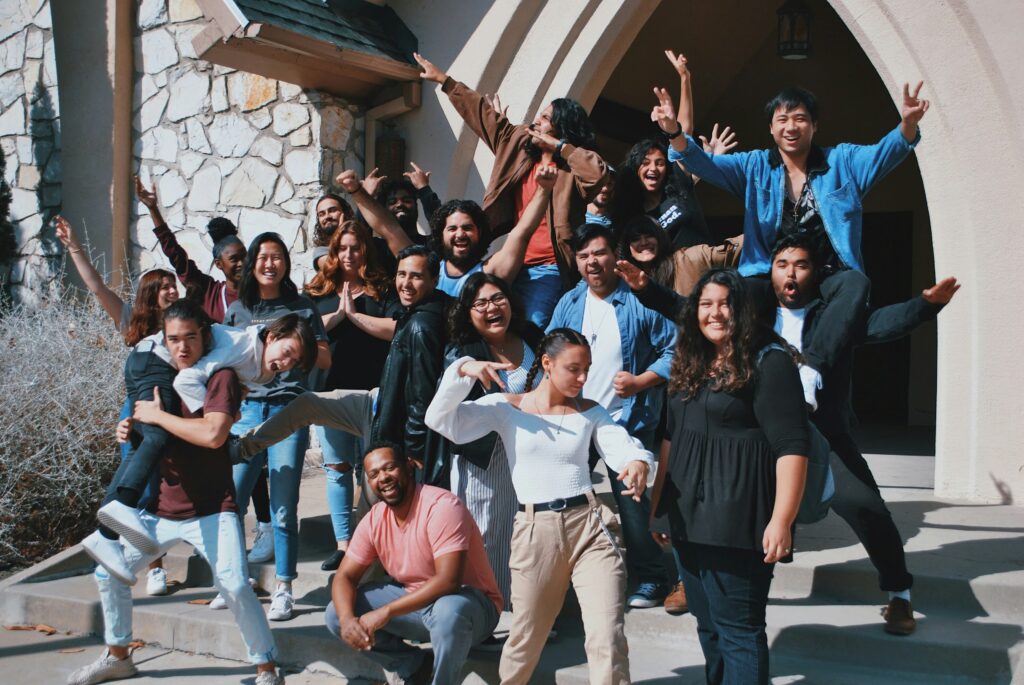
LDS Activity, Differentiation, and Healthy Boundaries
Anyone navigating the complexities of a faith crisis, undergoing an expansion of their faith, or experiencing growth in their spiritual beliefs is likely familiar with cognitive dissonance. This term, coined by psychologist Leon Festinger in the 1950s, refers to the mental discomfort experienced when someone holds two conflicting thoughts, beliefs, values, or attitudes simultaneously. This inner conflict can lead to significant psychological stress, pushing individuals to seek ways to resolve the contradiction and achieve mental harmony. Strategies to address this dissonance may include altering one of the conflicting beliefs, seeking new information to outweigh the discordant beliefs, or diminishing the importance of one belief over the other. Cognitive dissonance influences a wide range of human behaviors and decision-making processes, especially in situations involving moral choices, personal convictions, and social interactions.
I find discussing this concept particularly rewarding because understanding it can equip us to better navigate the uneasy feelings or situations it can cause. Knowing that such experiences are common and learning strategies to healthily manage this dissonance can significantly aid in navigating these challenging periods.
Navigating Cognitive Dissonance within the LDS Faith: Strategies for Psychological Health
Navigating cognitive dissonance within the LDS faith—or, indeed, any faith tradition—demands a thoughtful, compassionate strategy that respects the complexity of individual belief systems. Recognizing doubt and questioning as integral components of spiritual growth marks an essential step toward safeguarding psychological health. This journey begins with the encouragement for individuals to develop a keen sense of self-awareness, enabling them to discern which personal values align with their faith’s teachings and which may not.
Cultivating an open-minded attitude is equally important, as it allows individuals to approach potentially divisive topics with a willingness to understand perspectives different from their own. Engaging in respectful, meaningful dialogue within one’s community not only aids in exploring complex issues but also builds a supportive network for individuals wrestling with their beliefs.

Navigating with Integrity
The establishment of clear personal boundaries plays a pivotal role in this process. By doing so, individuals can navigate their faith with integrity, honoring their personal convictions even as they continue to participate in the wider faith community. This delicate balancing act requires an acknowledgment of one’s needs and beliefs alongside a commitment to the communal aspects of faith.
Embracing one’s spiritual journey as a continuous process of learning and growth fosters a resilient and nuanced understanding of faith. It’s about seeing doubts not as threats to spiritual stability but as opportunities for deepening one’s connection to their beliefs and the broader community.
Intentional Interactions
In summary, fostering psychological well-being within the LDS Church—or any religious context—necessitates a harmonious blend of tradition and personal integrity. It involves a conscious effort to find common ground between established beliefs and individual truths. This approach not only enhances personal spiritual fulfillment but also contributes to the overall health and vitality of the community, creating a space where faith and doubt can coexist in a productive, meaningful dialogue.
The Role of Individual Growth in Collective Faith Practices
The interplay between individual growth and collective faith practices is complex and profoundly impactful. As members of a faith community embark on their spiritual journeys, they do more than seek personal enlightenment; they enrich the collective spiritual tapestry with their diverse experiences and insights. This individual quest for truth and understanding doesn’t just fulfill personal spiritual needs—it also enhances the communal faith experience, making it more vibrant and inclusive.
Each person’s unique journey contributes to a broader, more dynamic understanding of faith within the community. Individual growth pushes the boundaries of traditional practices and beliefs, challenging the community to adapt and grow. This ongoing process of personal development fosters a culture of adaptability and empathy among congregants as they learn to appreciate and integrate the wide range of spiritual experiences and perspectives present within their community.

Deeping the Collective Faith
Moreover, the pursuit of individual spiritual growth has the power to deepen the collective faith in meaningful ways. When individuals nurture their spiritual selves, they bring back to the community a wealth of insights and revelations that can inspire and encourage others. This not only adds depth and resilience to the community’s shared beliefs but also ensures that these beliefs remain relevant and responsive to the congregation’s evolving spiritual needs.
The reciprocal relationship between individual and collective spirituality underscores the critical role that personal growth plays in strengthening the faith community. It highlights the importance of fostering an environment where individual journeys are supported and valued, not as separate from but as integral to the collective practice of faith. This approach promotes mutual respect and understanding, ensuring that the community’s practices evolve in harmony with its members’ diverse spiritual landscapes. Ultimately, the commitment to individual spiritual evolution is a commitment to the ongoing vitality and relevance of the collective faith, creating a community that is both resilient and ever-evolving.
Staying or Leaving with Purpose: Understanding Motivations within the LDS Church
The decision to either stay in or leave the LDS Church represents a deeply personal and often complex journey, influenced by a myriad of motivations and considerations. For those who choose to stay, their decision is frequently anchored in significant spiritual experiences that affirm their faith, the deep connections formed within their community, and the sense of fulfillment and purpose found in the church’s teachings and practices. These elements combine to create a strong foundation of faith that resonates with their personal and spiritual identity.
On the other hand, the choice to leave the church can stem from an equally profound place of personal reflection and need. It might be driven by a desire for self-discovery and the exploration of beliefs and values that lie beyond the church’s established doctrines. For some, this decision is influenced by the experience of cognitive dissonance, where there is a felt discrepancy between personal beliefs and the teachings of the church, leading to a search for spiritual integrity and authenticity outside of its bounds.
The Gift of Growth
Navigating this crossroad is no small feat; it requires a great deal of courage, introspection, and resilience. Individuals embarking on this journey must confront and reconcile various aspects of their identity, often against the backdrop of family expectations and societal pressures. The path one chooses—whether to stay within the fold of the church or to venture outside it—demands a nuanced understanding of one’s self and a steadfast commitment to personal truth.
Irrespective of the outcome, at the heart of this journey is the quest for psychological well-being and spiritual integrity. The ultimate goal is not merely to make a decision but to arrive at a place of peace and empowerment that aligns with one’s deepest convictions and sense of self. Embracing the journey towards this alignment, with all its challenges and revelations, allows for an authentic expression of one’s relationship with faith. It is in this pursuit that individuals can find a sense of belonging and contentment rooted not in external expectations but in the truth of their personal experiences and beliefs.
